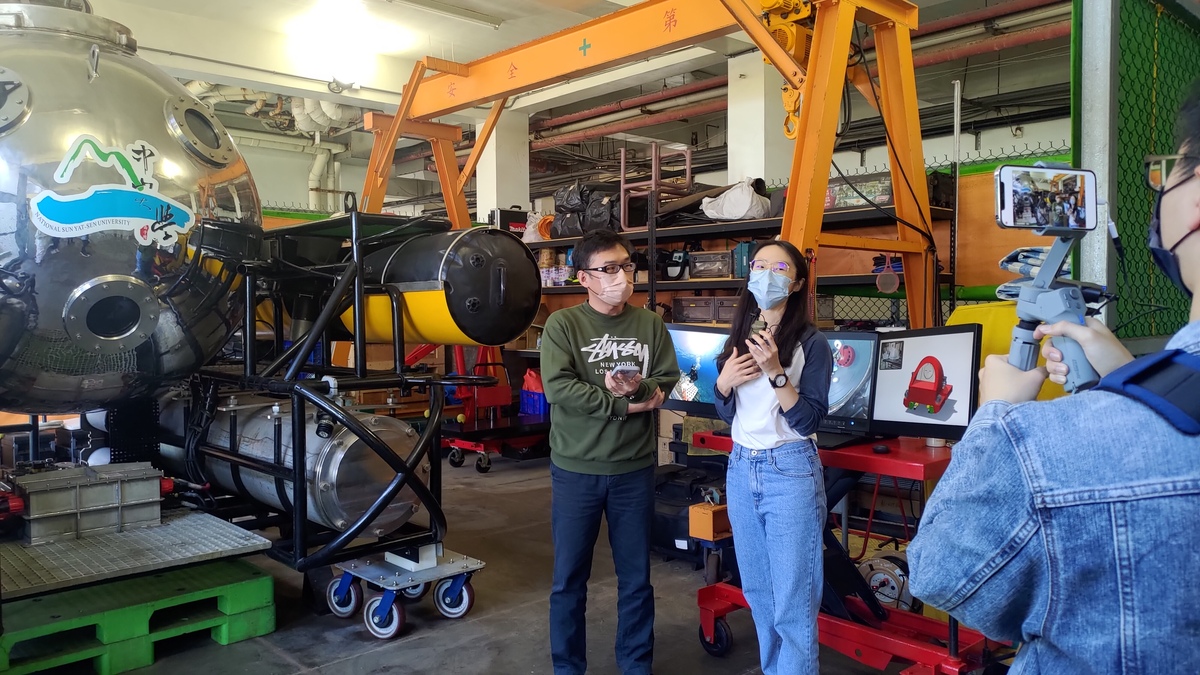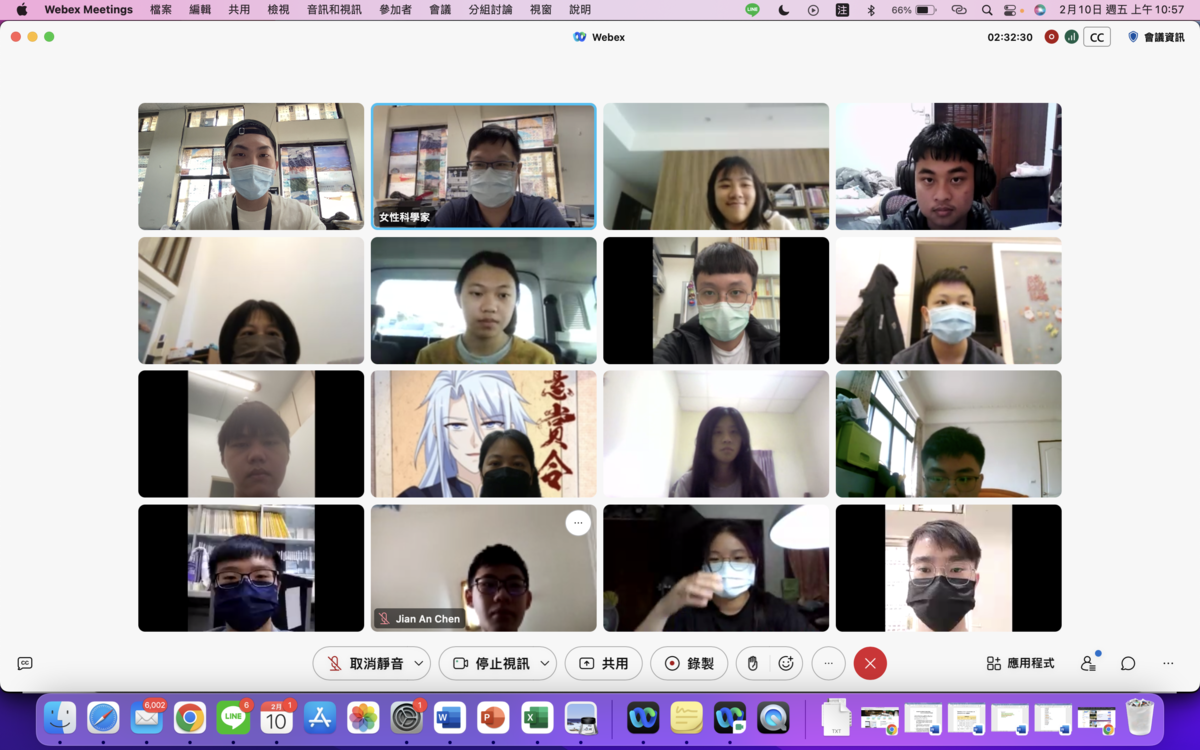In response to the International Day of Women and Girls in Science on February 11th, National Sun Yat-sen University joined hands with China Steel Corporation Group’s Education Foundation to hold Online Visits to NSYSU’s Laboratories for Female Scientists for four consecutive days from February 7th to 10th. Through the live streaming lens, female high school students were led to explore 16 laboratories including semiconductors, fiber and quantum optics, rapid screening for biomedicine, liquid crystal photonics, and communication theory, in the hope of encouraging and cultivating more female students to devote themselves to STEM (Science, Technology, Engineering, and Mathematics) fields, which use scientific and technological knowledge and actions to change the world. More than 100 high school students from all over Taiwan signed up to participate.
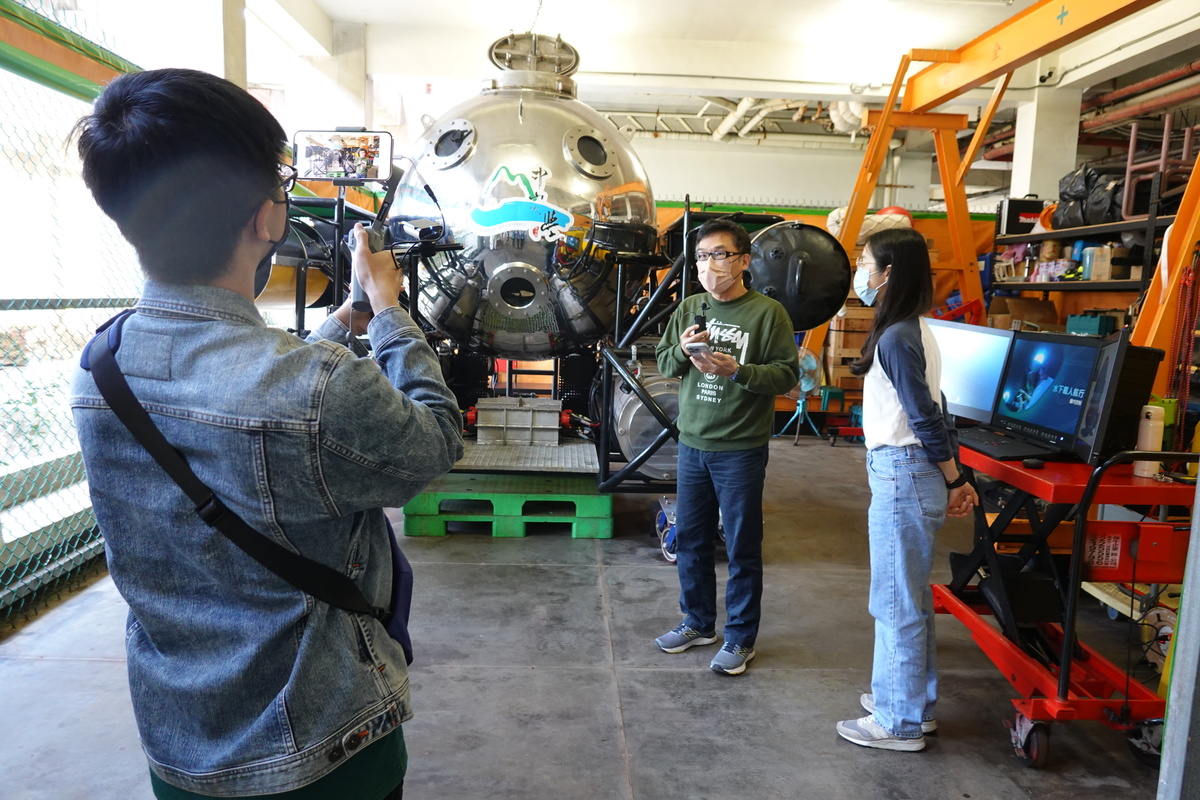
Associate Professor Yu-Cheng Chou of the Institute of Undersea Technology (second from the right) explained the process of NSYSU's R&D of the underwater manned vehicle.
Shiow-Fon Tsay, the moderator of “Follow STEM Role Model: Female Science and Technology Talent Development Program” of the National Science Council, Distinguished Professor of the Department of Physics, and Vice President of NSYSU, pointed out that in 2022, the world-renowned academic website Research.com added the “Best Female Scientists in the World Ranking” for the first time. Position in the ranking is based on a scientist’s paper citation index (H-index); only the top 1,000 female scientists with the highest H-index in the world are featured in the ranking. Among them, the United States has the most people on the list with 623, followed by the United Kingdom with 96; among Asian countries, China (including Hong Kong) has the most on the list with 13 people, Singapore has 2, Japan has 1, and Taiwan has zero. According to the data from the National Science Council, in terms of gender, in 2020, the country’s overall R&D workforce, including researchers, technicians, and support personnel in enterprises, governments, higher education, and the private non-profit sector, is 256,789 males and only 94,068 females; in terms of the number of researchers alone, there are 157,299 males and only 46,672 females, with the number of males about three times that of females.
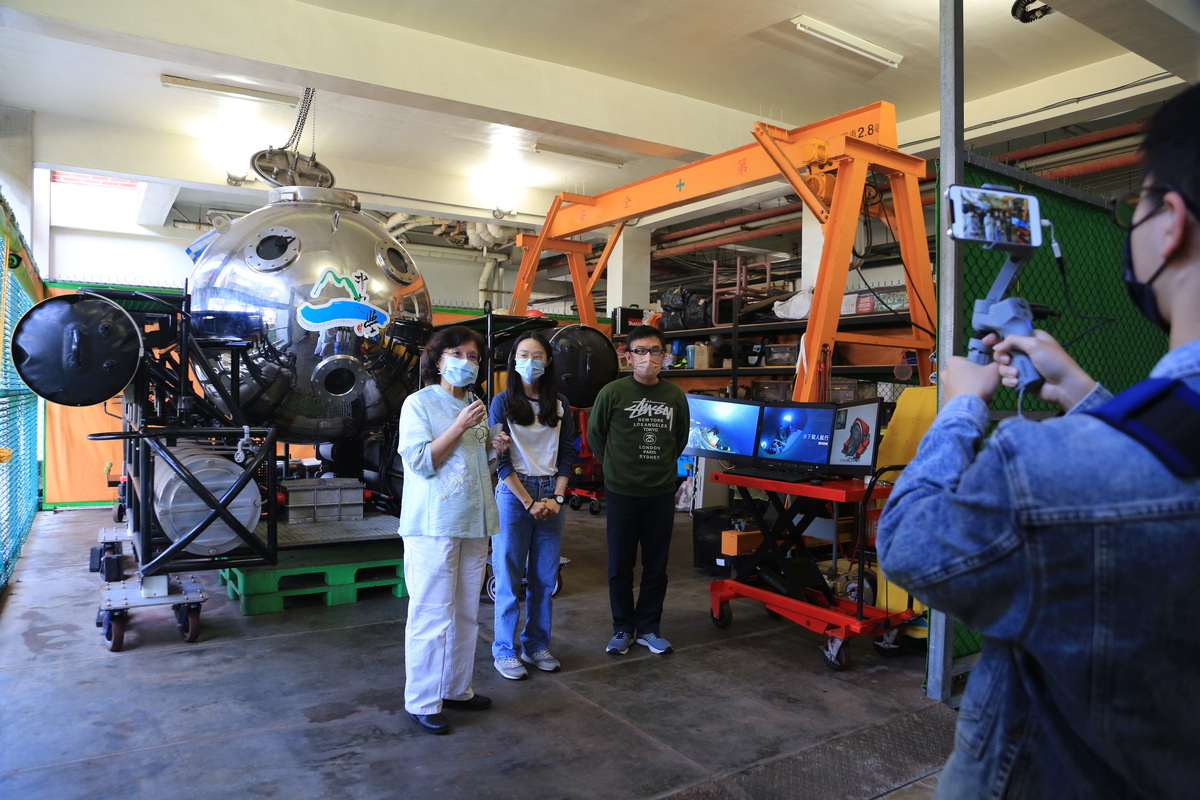
NSYSU joined hands with China Steel to hold an online visit to 16 laboratories to incubate womanpower in science and technology
“Women are less likely than men to enter careers related to mathematics and physical sciences because women lack confidence.” Vice President Shiow-Fon Tsay said that female students are the future “Womanpower of Science and Technology,” just like the seeds of science that are sprouting. Especially during the critical period of middle school, female students’ gender stereotypes about science learning will affect their future achievement performance. According to research, if parents or teachers do not encourage girls to learn mathematics at this stage, or even instill in them the idea that “girls are inherently poor in mathematics” or “girls who are good at mathematics are not attractive,” it may reduce the motivation and time spent by female students studying mathematics, resulting in lower grades. Through the live streaming, female high school students were led online to explore the contents of laboratories in the Departments of Physics, Chemistry, Communications Engineering, Materials and Optoelectronic Science, Photonics, Oceanography, and Marine Biotechnology and Resources. Students could understand the mysteries of the laboratories without going out, which stimulated their interest and enthusiasm in the field of science and technology. On-site visits are expected to restart in July this year.
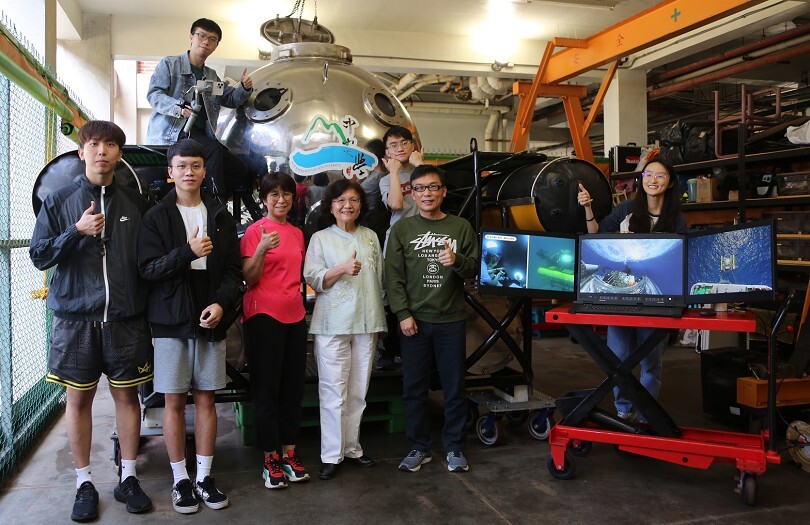
In response to the International Day of Women and Girls in Science, NSYSU joined hands with China Steel Corporation Group’s Education Foundation to hold Online Visits to NSYSU’s Laboratories for Female Scientists. Through the live streaming lens, female high school students were led to explore 16 laboratories including semiconductors, fiber and quantum optics, rapid screening for biomedicine, liquid crystal photonics, and communication theory. The fourth from the left in the front row is Shiow-Fon Tsay, the project moderator, Distinguished Professor of the Department of Physics, and Vice President of NSYSU.
The 16 laboratories of NSYSU that are available for online visits include the Semiconductor Nano Device & TFT Display Lab led by Chair Professor Ting-Chang Chang of the Department of Physics, the Fiber and Quantum Optics Laboratory led by Assistant Professor Yi-Hsin Chen of the Department of Physics, the Rapid Screening Research Center for Toxicology and Biomedicine led by Chair Professor Jentaie Shiea of the Department of Chemistry, the Liquid Crystal Photonics Lab led by Professor Tsung-Hsien Lin of the Department of Photonics, the Functional Polymers and Supramolecular Materials Research Center led by Distinguished Professor Shiao-Wei Kuo of the Department of Materials and Optoelectronic Science, the Bioorganic and Chemical Biology Lab led by Professor Po-Chiao Lin of the Department of Chemistry, the Zooplanktonology and Fish Biology Laboratory led by Distinguished Professor Meng-Hsien Chen of the Department of Oceanography, the Laboratory for Marine Chemicobiology led by Professor Chih-Chuang Liaw of the Department of Marine Biotechnology and Resources, the Underwater Vehicle R&D Center led by Distinguished Professor Chua-Chin Wang of the Department of Electrical Engineering and Associate Professor Yu-Cheng Chou of the Institute of Undersea Technology, the Coastal Carbon Dynamic Lab led by Associate Professor Wei-Jen Huang of the Department of Oceanography, the Instrumentation Center / Center for Nanoscience & Nanotechnology led by Distinguished Professor Wei-Lung Tseng of the Department of Chemistry, the Electro-Optical Modulation Lab led by Professor Yi-Jen Chiu of the Department of Photonics, the Communication Theory Lab led by Professor Chao-Kai Wen of the Institute of Communications Engineering, the Organometallic Chemistry & Homogeneous Catalysis Lab led by Distinguished Professor Lan-Chang Liang of the Department of Chemistry, the Integrated Optoelectronic Device Lab led by Professor Yung-Jr Hung of the Department of Photonics, and the Marine Animal Physiology Laboratory led by Professor Li-Lian Liu of the Department of Oceanography.

